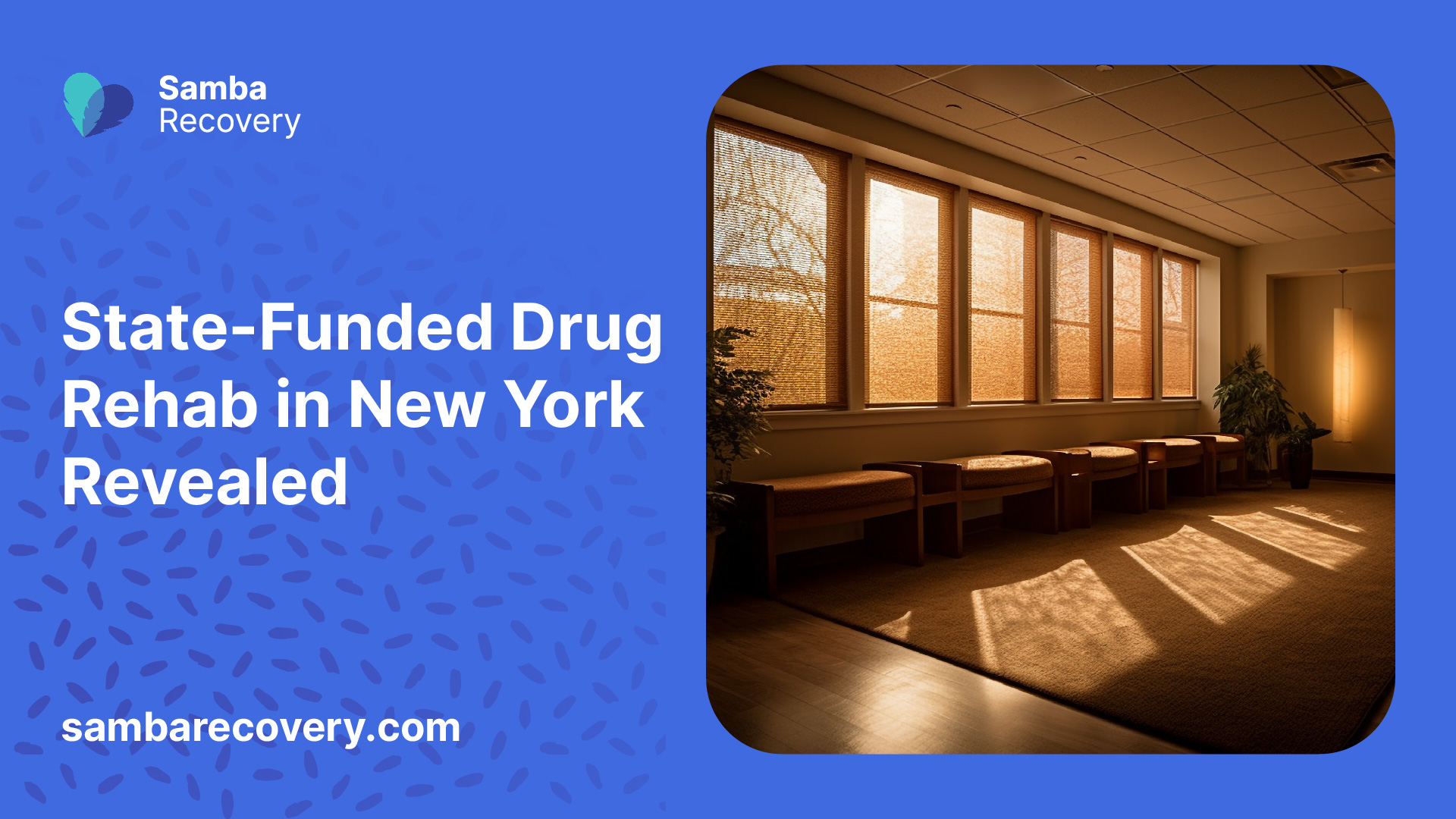
Accessible Addiction Treatment in New York
State-Funded Rehab Centers
State-funded rehab centers in New York provide accessible addiction treatment options for individuals facing financial barriers. These centers offer a range of services including medical detox and behavioral counseling, tailored to meet the needs of those with lower incomes [1]. The goal is to ensure that everyone, regardless of their financial situation, has the opportunity to receive quality addiction treatment.
| Service Type | Description |
|---|---|
| Medical Detox | Safe, supervised detoxification process to manage withdrawal symptoms |
| Behavioral Counseling | Therapy sessions to address mental health and behavioral issues |
| Outpatient Treatment | Flexible treatment allowing individuals to continue daily activities |
| Residential Treatment | Comprehensive care in a live-in facility for intensive support |
For more information on the services offered at these centers, visit our page on what is state-funded drug rehab?.
Financial Assistance Programs
Financial assistance programs play a crucial role in making state-funded drug rehab in New York more accessible. Medicaid, Medicare, and Tricare are key state and federal healthcare programs that provide affordable addiction treatment at state-funded rehab centers. These programs have specific eligibility requirements and coverage offerings, catering to individuals with low incomes, specific health conditions, or military backgrounds.
| Program | Eligibility | Coverage |
|---|---|---|
| Medicaid | Low-income individuals | Comprehensive health coverage including addiction treatment |
| Medicare | Seniors (65+), certain younger people with disabilities | Inpatient and outpatient addiction treatment |
| Tricare | Military personnel, retirees, and dependents | Wide range of addiction treatment services |
State-funded drug rehab centers also offer various forms of payment assistance to further ease the financial burden on individuals seeking treatment. This includes sliding scale fees, payment plans, and acceptance of state-funded aid such as Medicare and Tricare. These measures ensure that cost does not become a barrier to receiving essential addiction treatment.
To learn more about effective addiction treatment principles, explore our article on what are the principles of effective treatment?.
By leveraging state-funded rehab centers and financial assistance programs, New York aims to provide comprehensive and accessible addiction treatment to all its residents. For additional information on medications and devices that help treat drug addiction, refer to our guide on what medications and devices help treat drug addiction?.
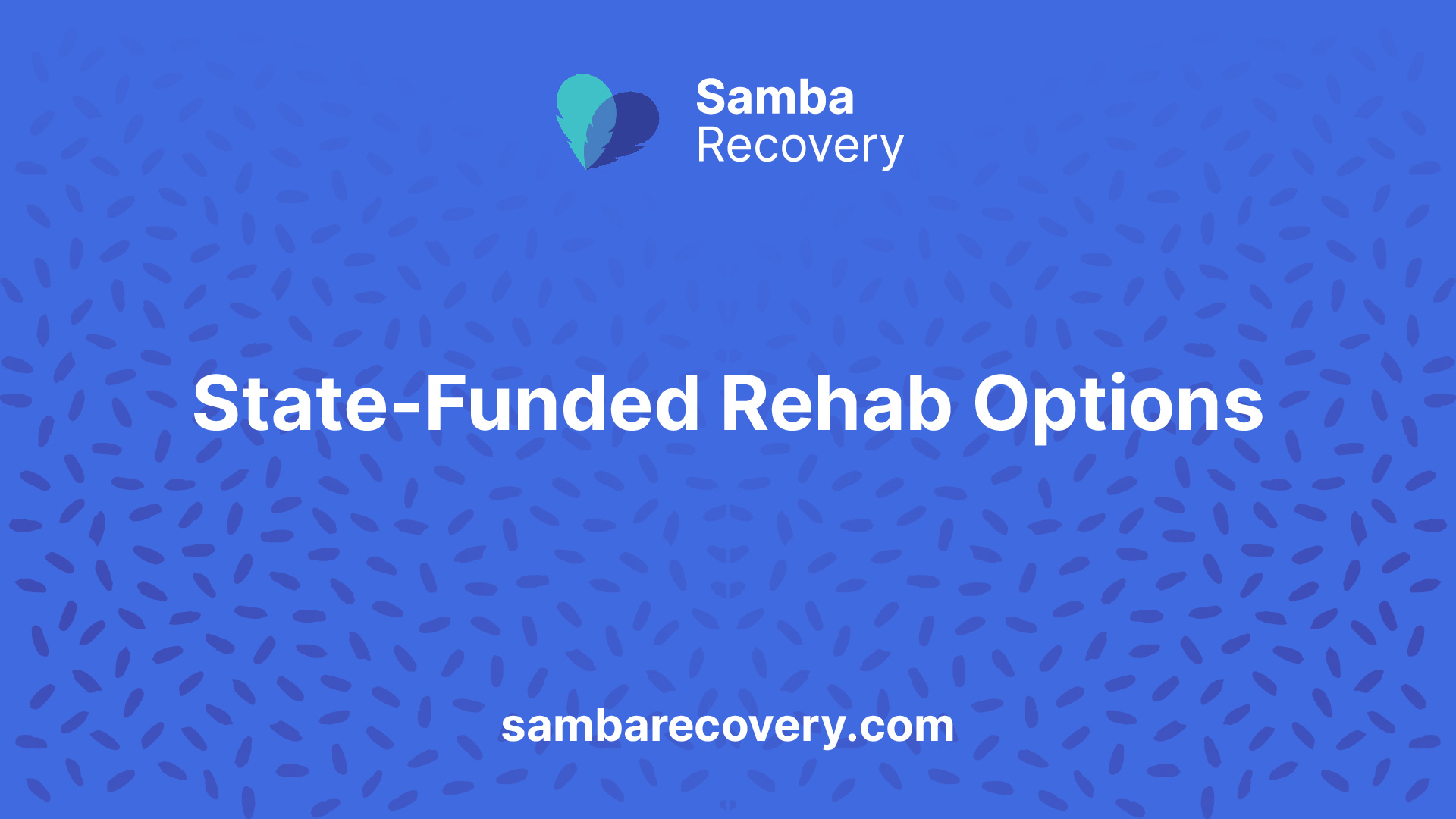
State-Funded Rehab Options
State-funded drug rehab centers in New York provide crucial support for individuals seeking affordable addiction treatment. These centers offer a range of services, including medical detox and behavioral counseling, to help those with financial barriers. This section explores the various state-funded rehab options available, focusing on Medicaid, Medicare, and Tricare support, as well as additional payment assistance programs.
Medicaid, Medicare, Tricare Support
Medicaid, Medicare, and Tricare are significant state and federal healthcare programs in New York that enhance the accessibility of affordable addiction treatment at state-funded rehab centers. Each program has its own eligibility requirements and coverage offerings, catering to individuals with low incomes, specific health conditions, or military backgrounds.
| Program | Eligibility | Coverage |
|---|---|---|
| Medicaid | Low-income individuals and families | Inpatient and outpatient treatment, counseling, medication-assisted treatment |
| Medicare | Individuals over 65 or with certain disabilities | Detox, inpatient and outpatient services, counseling |
| Tricare | Military personnel, retirees, and their dependents | Detox, inpatient and outpatient services, counseling |
For more information on what these programs cover, visit our page on what medications and devices help treat drug addiction.
Payment Assistance Available
State-funded drug rehab centers in New York also offer various forms of payment assistance to ensure that treatment is accessible to all who need it. These centers accept state-funded aid such as Medicaid, Medicare, and Tricare, providing both outpatient and residential treatment options based on individual needs [1].
In addition to these programs, state-funded rehab centers may also receive block grants from organizations like the Substance Abuse and Mental Health Services Administration (SAMHSA). These grants help fund rehab centers, making treatment accessible to low-income individuals entering state-funded facilities.
State-funded rehab centers aim to remove financial barriers to addiction treatment, ensuring that everyone has the opportunity to receive the care they need. For more details on the principles of effective treatment, check out our article on what are the principles of effective treatment.
By leveraging these state and federal healthcare programs and payment assistance options, individuals in New York can access the addiction treatment they need without the burden of financial stress. This holistic approach ensures that more people can embark on the path to recovery with the support they need. For more information on state-funded rehab centers, visit our page on what is state-funded drug rehab?.
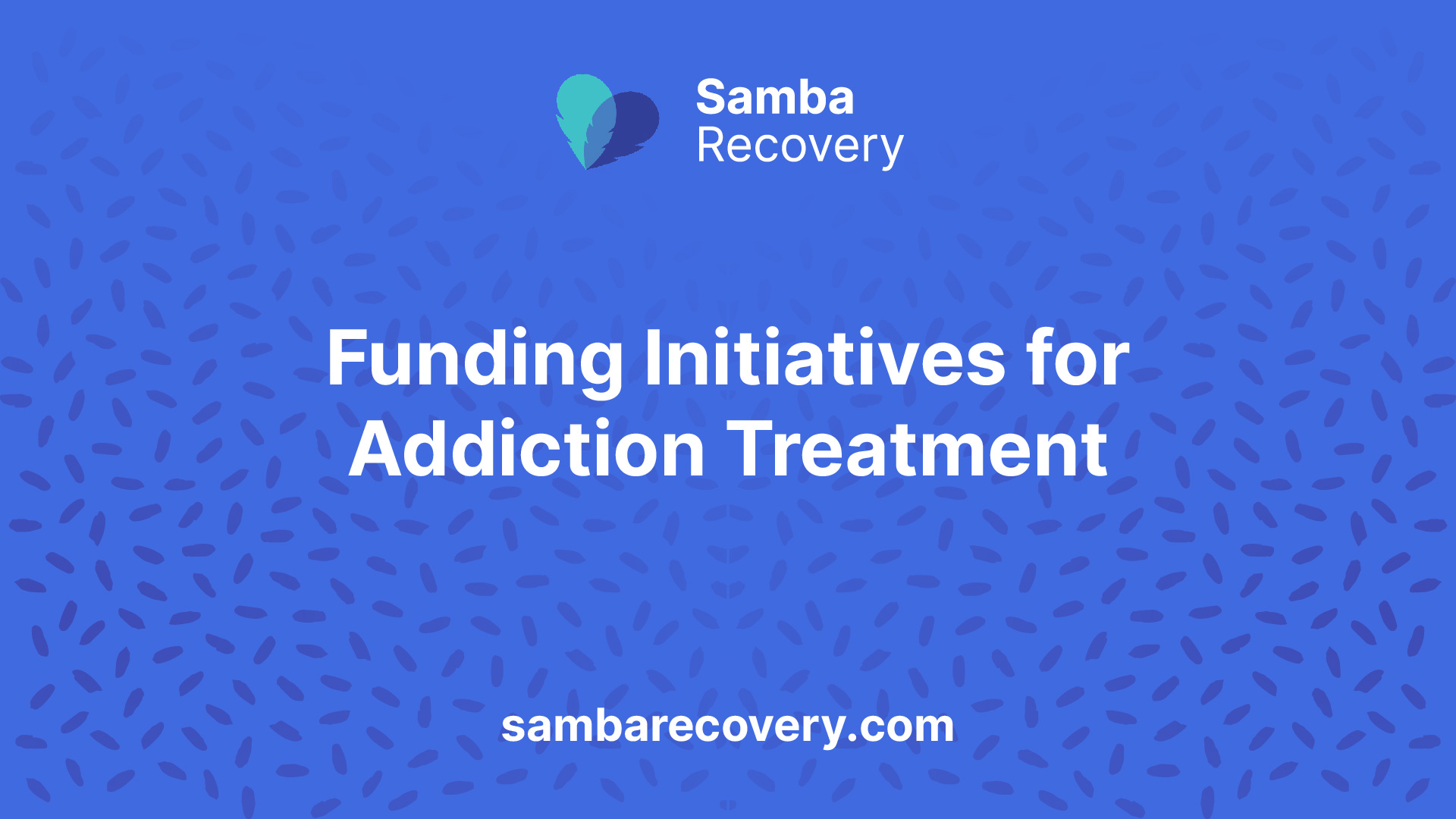
Funding Initiatives for Addiction Treatment
New York offers several state-funded drug rehab programs to assist those struggling with addiction. These initiatives are supported by various funding mechanisms to ensure accessible and effective treatment options.
Substance Abuse Prevention and Treatment Block Grant
The Substance Abuse Prevention and Treatment (SAPT) Block Grant is a key funding source for addiction treatment in New York. Provided by the U.S. Department of Health and Human Services’ Substance Abuse and Mental Health Services Administration (SAMHSA), this grant helps fund essential services such as prevention programs, treatment services, and recovery support.
Recent expansions of this program have resulted in supplemental funding to states annually. These funds help plan, implement, and evaluate activities that prevent and treat substance abuse [3]. For example, the Coronavirus Response and Relief Supplemental Appropriations Act and the American Rescue Plan Act have provided additional support for substance use disorder services through expansions to the SAPT Block Grant and Federal Medical Assistance Percentage for Medicaid programs [3].
| Funding Source | Amount (in millions) | Purpose |
|---|---|---|
| SAPT Block Grant | $30 | Prevention, treatment, and recovery support |
| Coronavirus Relief | $15 | Supplemental funding for SUD services |
| American Rescue Plan | $20 | Expanded services and Medicaid support |
Opioid Settlement Initiatives
New York has also benefited from opioid settlement initiatives aimed at addressing the opioid crisis. These initiatives provide crucial funding for state-funded drug rehab programs, enhancing the availability and quality of treatment services.
The Opioid Settlement Fund, established through legal settlements with opioid manufacturers and distributors, allocates resources to various addiction treatment and prevention efforts within the state. This funding supports a range of services, including medication-assisted treatment (MAT), behavioral therapy, and community outreach programs.
The federally-funded Residential Substance Abuse Treatment (RSAT) Program, created in 1994, also plays a significant role. This program addresses the high incidence of substance abuse among incarcerated individuals by providing drug abuse and lifestyle counseling services within several prisons across the state.
However, the RSAT program’s funding has faced challenges. Since 2003, New York’s RSAT funding has been significantly reduced by more than 85%, diminishing its impact on state and local substance abuse services.
| Funding Source | Initial Amount (in millions) | Current Amount (in millions) | Purpose |
|---|---|---|---|
| Opioid Settlement Fund | $50 | $45 | MAT, behavioral therapy, community programs |
| RSAT Program | $30 | $4.5 | In-prison counseling and aftercare services |
These funding initiatives are crucial in maintaining and expanding access to state-funded drug rehab in New York. They ensure that individuals seeking addiction treatment receive the necessary support and resources for recovery. For more information on effective treatment principles, visit our article on what are the principles of effective treatment.
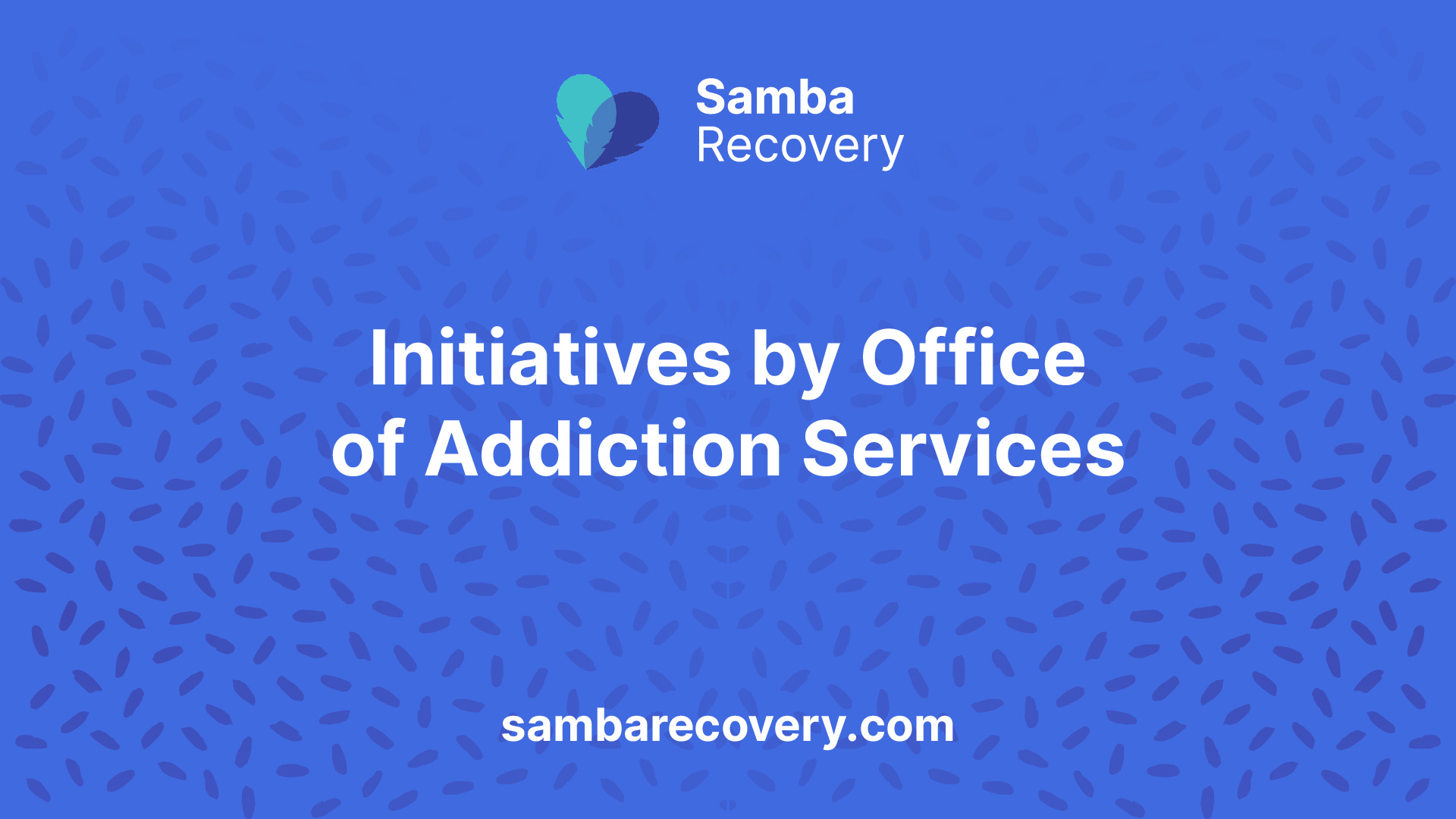
Initiatives by Office of Addiction Services
Funding Programs
The Office of Addiction Services and Supports (OASAS) in New York plays a pivotal role in providing financial support for addiction treatment services. This state agency allocates funding to not-for-profit organizations, local governmental units, and other entities to ensure comprehensive addiction services for New Yorkers, including programs for substance use disorders and compulsive gambling [3].
OASAS leverages various funding sources to support these initiatives:
- Substance Abuse Prevention and Treatment Block Grant: This federal grant program supplies states and territories with annual supplemental funding to plan, implement, and evaluate activities that prevent and treat substance abuse. Recent expansions have bolstered New York’s capacity to address substance use disorders effectively.
- Coronavirus Response and Relief Supplemental Appropriations Act: Provides additional funds to support substance use disorder services, expanding the Substance Abuse Prevention and Treatment Block Grant program.
- American Rescue Plan Act: Offers supplemental funding to enhance the Federal Medical Assistance Percentage (FMAP) for Medicaid programs, aiding in the treatment of substance use disorders.
Here’s a summary of the funding programs:
| Funding Program | Purpose | Impact |
|---|---|---|
| Substance Abuse Prevention and Treatment Block Grant | Plan, implement, evaluate substance abuse activities | Expanded capacity for substance use disorder treatment |
| Coronavirus Response and Relief Supplemental Appropriations Act | Support substance use disorder services | Enhanced service availability |
| American Rescue Plan Act | Increase FMAP for Medicaid programs | Improved treatment funding |
Collaborations for Community Needs
New York State, through OASAS, actively collaborates with community stakeholders to identify and address unmet needs in addiction prevention, treatment, and recovery. These collaborations aim to leverage funding opportunities provided by recent federal legislation to enhance the state’s addiction services network.
Key collaborative efforts include:
- Community Stakeholder Engagement: Working with local organizations to understand and address specific needs within communities, ensuring that services are tailored and accessible.
- Funding Opportunity Awareness: Helping not-for-profit organizations, local governmental units, and other businesses stay informed about available funding opportunities to support a comprehensive system of addiction services.
By fostering these collaborations, OASAS ensures that the funds are effectively utilized to create a robust and responsive addiction treatment infrastructure.
For individuals seeking information on state-funded drug rehab in New York, understanding these initiatives can provide valuable insights into the available resources and support systems. Additionally, exploring options like what medications and devices help treat drug addiction can further aid in making informed decisions about treatment pathways.
Challenges in Addiction Treatment
Addiction treatment in New York faces several challenges, particularly in state-funded rehab programs. These challenges can hinder the effectiveness of treatment and accessibility for those in need.
Waiting Lists and Accessibility
One of the significant challenges in state-funded drug rehab in New York is the presence of waiting lists. Research indicates that seeking treatment as soon as an individual is ready increases the likelihood of a positive outcome. However, facilities often don’t have room immediately, creating a barrier to timely treatment.
A study reveals that participants who entered treatment within 60 days after being placed on a waiting list showed improvement on psychiatric measures but not on substance abuse measures [7]. The severity of drug problems worsened for the sample as a whole over time, even though there was some evidence that drug problems improved for the subset who received subsequent treatment.
| Study Finding | Percentage |
|---|---|
| Participants who received some treatment during follow-up | 73% |
| Participants who showed improvement on psychiatric measures | – |
| Participants whose drug problem severity worsened | – |
The challenges of waiting lists and accessibility highlight the need for more immediate availability of treatment options. For more information on the principles of effective treatment, visit what are the principles of effective treatment?.
Impact of Reduced Funding
Reduced funding significantly impacts the quality and availability of state-funded drug rehab programs in New York. Budget cuts and limited resources can lead to longer waiting times, reduced availability of comprehensive services, and a lower standard of care. Participants who received some subsequent treatment at follow-up reported higher employment problems compared with those who did not enter treatment [7].
The reduction in funding also affects the ability of rehab centers to maintain staff, invest in new treatments, and provide adequate support services. This can result in fewer successful outcomes and increased relapse rates.
The following table illustrates the impact of reduced funding on various aspects of addiction treatment:
| Aspect Affected | Impact |
|---|---|
| Waiting Times | Increased |
| Availability of Services | Decreased |
| Quality of Care | Compromised |
| Staff Retention | Lowered |
Understanding these challenges is crucial for addressing the gaps in addiction treatment services. For an overview of comprehensive addiction services in New York, visit our treatment centers overview.
By recognizing the issues of waiting lists and reduced funding, stakeholders can work towards improving the accessibility and effectiveness of state-funded drug rehab programs in New York.
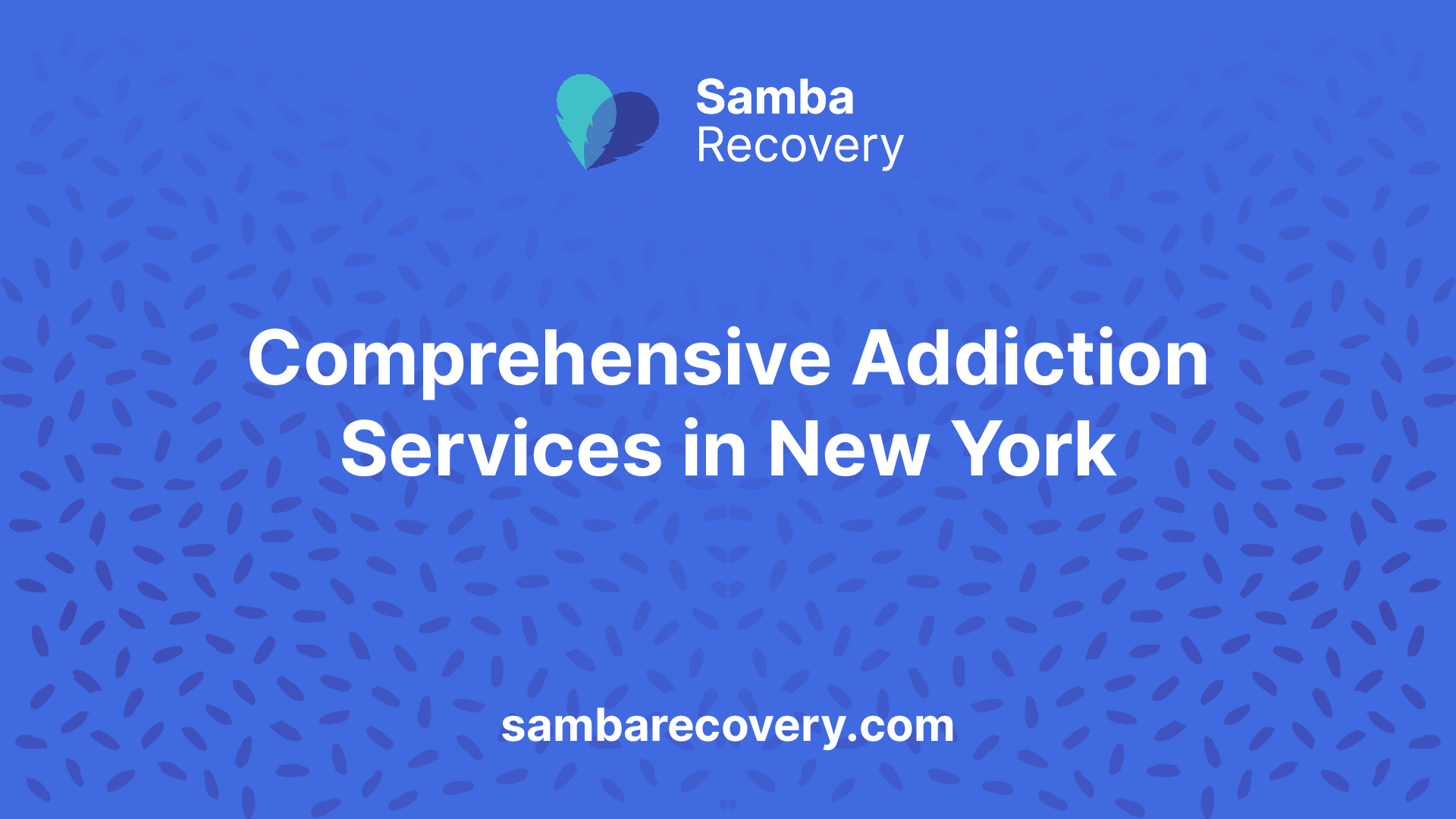
Comprehensive Addiction Services in New York
Treatment Centers Overview
The New York State Office of Addiction Services and Supports (OASAS) operates and staffs 12 Addiction Treatment Centers (ATCs) across the state [2]. These state-certified facilities offer individualized care tailored to each client’s needs, providing a comprehensive range of services to support long-term recovery. The ATCs ensure that individuals receive the necessary help to combat addiction regardless of their income level, making treatment accessible to all.
| Service | Details |
|---|---|
| Number of ATCs | 12 |
| Annual Individuals Served | 260,000 (New York State Department of Health) |
| Services Offered | Inpatient, outpatient, residential, methadone, crisis services |
For more information on what state-funded drug rehab entails, check what is state-funded drug rehab?.
Specialized Treatment Services
State-funded drug rehab programs in New York provide a variety of specialized treatment services to cater to the diverse needs of individuals struggling with addiction. These services include:
- Counseling and Therapy: Qualified professionals offer counseling and therapy sessions designed to address the psychological aspects of addiction. These sessions are crucial for understanding the root causes of substance abuse and developing coping strategies for long-term recovery.
- Medication-Assisted Treatment (MAT): For individuals battling opioid or alcohol addiction, MAT combines FDA-approved medications with counseling and behavioral therapies. This approach helps manage withdrawal symptoms and supports sustained recovery [2].
- Comprehensive Medical Treatment: Medical treatment options are available to address the physical health issues associated with addiction. This includes detoxification services and ongoing medical care to ensure individuals are physically stable throughout their recovery journey.
- Specialized Programs: Programs tailored to specific populations, such as pregnant women, adolescents, and individuals with co-occurring mental health disorders, are also available. These specialized programs ensure that every individual’s unique needs are met.
| Specialized Services | Description |
|---|---|
| Counseling and Therapy | Address psychological aspects of addiction |
| Medication-Assisted Treatment (MAT) | Combines medications with therapy |
| Comprehensive Medical Treatment | Detoxification and ongoing medical care |
| Specialized Programs | Tailored to specific populations |
State-funded drug rehab programs in New York prioritize accessibility by offering free or reduced-cost programs for individuals who may not afford private treatment options. Eligibility criteria typically consider factors such as income, residency, and the individual’s need for substance abuse treatment.
References
[1]: https://www.freerehabcenters.net/state-funded-rehab-centers/new-york/
[3]: https://oasas.ny.gov/procurement
[4]: https://www.criminaljustice.ny.gov/ofpa/rsat.htm
[5]: https://oasas.ny.gov/sapt-supplemental-funding-opportunities
[6]: https://americanaddictioncenters.org/rehab-guide/waiting-lists






